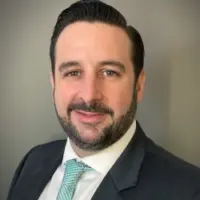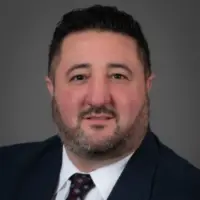The counselor and nurses are top nothing. I thought I would have a hard time transferring however they were fair honest and more importantly cared about their patients. IF YOU do the work this place will work.
About Staten Island University Hospital – Water Street
Their staff includes counselors, physicians and nursing staff. Their methadone maintenance program helps you gradually detox and break the cycle of opioid dependence. Emphasis is on personalized care. Interventions are designed to match your readiness for change. This increases the likelihood of a positive response to treatment. The program starts with an initial assessment to determine the appropriate dosage based on your symptoms.
Following this, the care personnel will administer methadone regularly. This minimizes the withdrawal symptoms, curbs cravings and stabilizes your condition. With cravings subdued, you can then more easily engage in outpatient care for lasting recovery. This primarily involves group and individual counseling.
Counseling includes relapse prevention education, DWI evaluation and early recovery or aftercare groups. Other focuses are education and life skills, women’s counseling and advanced recovery groups. Overdose prevention education is also available.
Their complete care approach involves referral to onsite vocational and educational counseling. This includes GED programs, literacy classes and career counseling. This can fast track your educational goals and career prospects. They also connect you with community services and on-site support groups like 12 step meetings for ongoing care. Free Narcan kits are offered to all patients and support persons.
Rehab Score
Other Forms of Payment
Self-pay involves paying for treatment out of your own pocket. You can use savings or credit, get a personal loan, or receive help from family and friends to fund your treatment. If you don't have insurance or your insurance plan doesn't cover a specific program, self-pay can help ensure you still get the care you need.
Medicaid is a state based program that helps lower-income individuals and families pay for healthcare. Medicaid covers addiction treatment so those enrolled can use their coverage to pay for rehab. When a program accepts Medicaid the client often pays very little or nothing out of their own pocket.
Addiction Treatments
Levels of Care
Outpatient Programs (OP) are for those seeking mental rehab or drug rehab, but who also stay at home every night. The main difference between outpatient treatment (OP) and intensive outpatient treatment (IOP) lies in the amount of hours the patient spends at the facility. Most of the time an outpatient program is designed for someone who has completed an inpatient stay and is looking to continue their growth in recovery. Outpatient is not meant to be the starting point, it is commonly referred to as aftercare.
Drug and alcohol addiction often takes a heavy toll on one's body. Over time, a physical dependence can develop, meaning the body physiologically needs the substance to function. Detox is the process of removing drugs and/or alcohol from the body, a process that can be lethal if mismanaged. Medical detox is done by licensed medical professionals who monitor vital signs and keep you safe, healthy, and as comfortable as possible as you go through detox and withdrawal.
Treatments
Many of those suffering from addiction also suffer from mental or emotional illnesses like schizophrenia, bipolar disorder, depression, or anxiety disorders. Rehab and other substance abuse facilities treating those with a dual diagnosis or co-occurring disorder administer psychiatric treatment to address the person's mental health issue in addition to drug and alcohol rehabilitation.
A combined mental health and substance abuse rehab has the staff and resources available to handle individuals with both mental health and substance abuse issues. It can be challenging to determine where a specific symptom stems from (a mental health issue or an issue related to substance abuse), so mental health and substance abuse professionals are helpful in detangling symptoms and keeping treatment on track.
Opioid rehabs specialize in supporting those recovering from opioid addiction. They treat those suffering from addiction to illegal opioids like heroin, as well as prescription drugs like oxycodone. These centers typically combine both physical as well as mental and emotional support to help stop addiction. Physical support often includes medical detox and subsequent medical support (including medication), and mental support includes in-depth therapy to address the underlying causes of addiction.
Programs
Adult rehab programs include therapies tailored to each client's specific needs, goals, and recovery progress. They are tailored to the specific challenges adult clients may face, including family and work pressures and commitments. From inpatient and residential treatment to various levels of outpatient services, there are many options available. Some facilities also help adults work through co-occurring conditions, like anxiety, that can accompany addiction.
Young adulthood can be an exciting, yet difficult, time of transition. Individuals in their late teens to mid-20s face unique stressors related to school, jobs, families, and social circles, which can lead to a rise in substance use. Rehab centers with dedicated young adult programs will include activities and amenities that cater to this age group, with an emphasis on specialized counseling, peer socialization, and ongoing aftercare.
Clinical Services
Group therapy is any therapeutic work that happens in a group (not one-on-one). There are a number of different group therapy modalities, including support groups, experiential therapy, psycho-education, and more. Group therapy involves treatment as well as processing interaction between group members.
In individual therapy, a patient meets one-on-one with a trained psychologist or counselor. Therapy is a pivotal part of effective substance abuse treatment, as it often covers root causes of addiction, including challenges faced by the patient in their social, family, and work/school life.
Amenities
-
Private Setting
Staff

John Anastasio
Associate Executive Director, Finance

Brahim Ardolic, MD
Regional Executive Director, Executive Director – Staten Island University Hospital

Nicole J. Berwald, MD
Medical Director

Myrna Capabianco
Chief Nursing Officer

Vincent Ciccarelli
Associate Executive Director, Operations
Contact Information
111 Water street
Staten Island, NY 10304